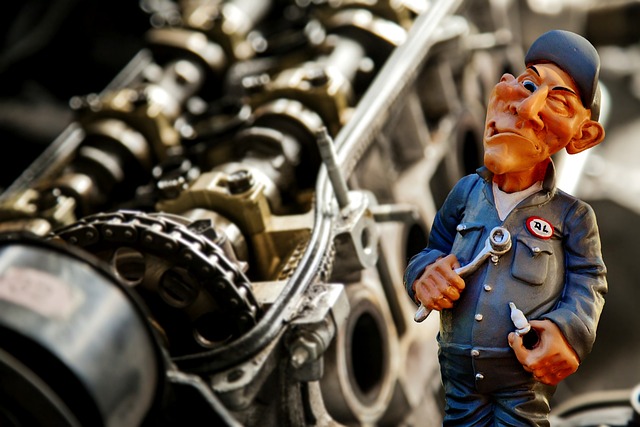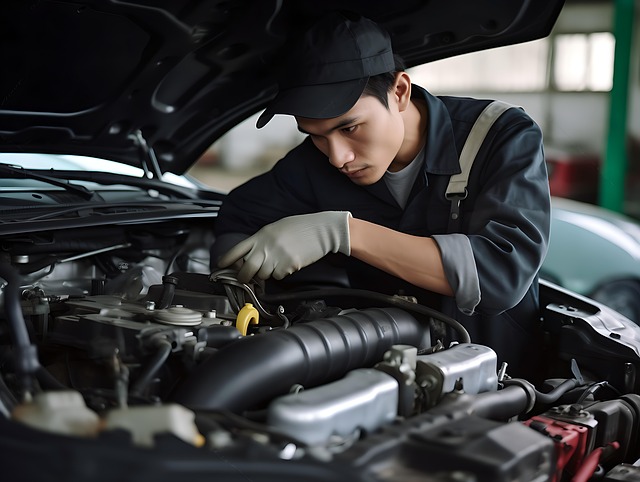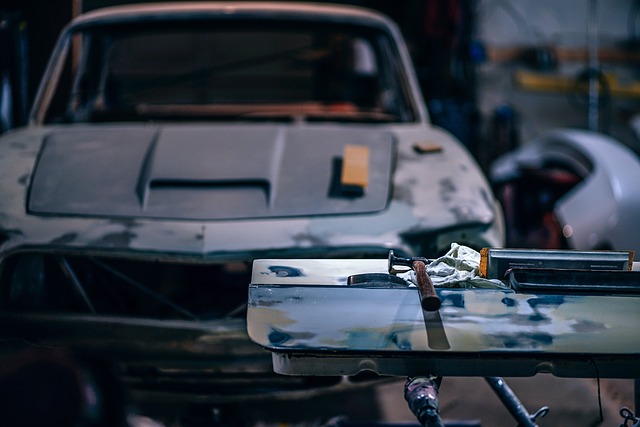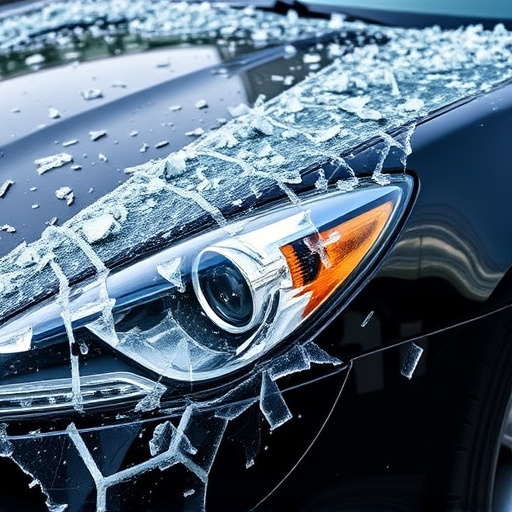Becoming a structural integrity expert requires a strong academic base in engineering, materials science, or automotive technology, coupled with relevant certifications from specialized institutions offering hands-on experience in structural analysis and crash testing. Continuous learning through training sessions, workshops, and webinars on advanced technologies is crucial for these experts to stay proficient and provide state-of-the-art solutions in collision damage repair, enhancing vehicle safety.
Becoming a structural integrity expert requires a robust combination of education, hands-on training, and continuous learning. This specialized field demands professionals with deep knowledge in engineering principles and advanced materials science. Structural integrity experts must hold relevant degrees, such as civil or mechanical engineering, often complemented by certifications specific to structural analysis. Practical experience through internships and on-the-job training is vital, fostering skills in design, testing, and inspection. Staying abreast of industry advancements through continuous learning ensures these experts remain at the forefront of structural safety and innovation.
- Educational Background: Degrees and Certifications Required
- Hands-on Training: Practical Experience and Skills Development
- Continuous Learning: Keeping Up with Industry Advancements
Educational Background: Degrees and Certifications Required
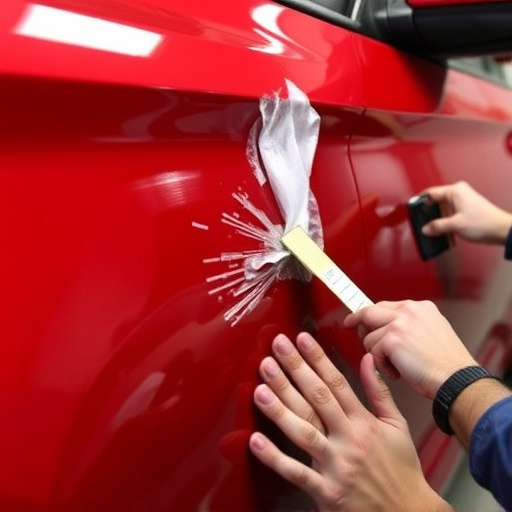
Becoming a structural integrity expert demands a robust educational foundation. Typically, prospective experts pursue degrees in fields like engineering, materials science, or automotive technology. These programs provide essential knowledge in areas such as mechanics, material properties, and design principles, which are pivotal for understanding vehicle structures and their behavior under various conditions.
For hands-on experience, relevant certifications from institutions specializing in automotive training are invaluable. Courses focused on structural analysis, crash testing, and repair techniques specific to modern vehicles equip individuals with the skills needed to assess and rectify structural damage in both collision repair centers and body shops. These educational milestones prepare professionals to excel as structural integrity experts within the industry, ensuring the safety and integrity of vehicle components.
Hands-on Training: Practical Experience and Skills Development
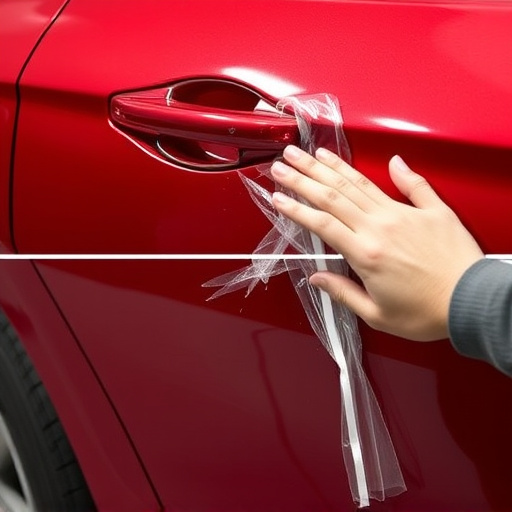
Hands-on training is an integral part of becoming a structural integrity expert. It involves practical experience and skills development in various areas critical to ensuring the safety and soundness of vehicles, especially in the context of luxury vehicle repair. Trainees learn how to assess and diagnose structural damage, often using advanced tools and techniques found in modern collision repair shops. This includes mastering techniques for metalworking, welding, and the application of specialized adhesives, all while adhering to strict industry standards.
The practical aspect of training allows future structural integrity experts to gain hands-on experience in repairing and reinforcing vehicle bodywork. They learn not just about the mechanics but also the artistry involved in precise repairs, ensuring that the final product is not only structurally sound but also maintains the aesthetic appeal of the original luxury vehicle. This blend of technical expertise and artistic skill sets structural integrity experts apart in the competitive automotive industry.
Continuous Learning: Keeping Up with Industry Advancements
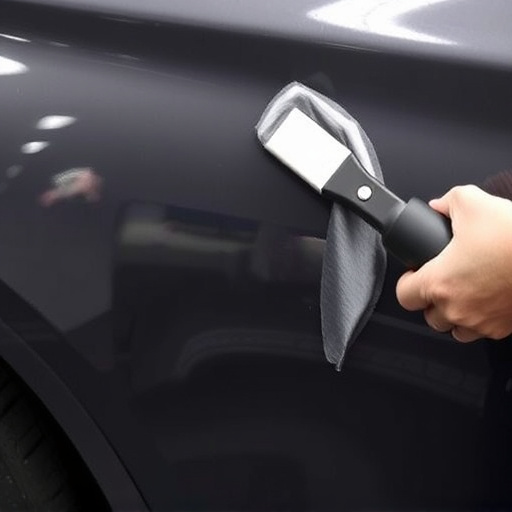
In the dynamic world of automotive engineering and manufacturing, continuous learning is a cornerstone for structural integrity experts. Staying current with industry advancements is vital to ensuring that these professionals can effectively contribute to the safety and reliability of modern vehicles. Regular training sessions, workshops, and webinars focused on emerging technologies, such as advanced materials, lightweight construction techniques, and sophisticated crash-testing methodologies, empower structural integrity experts to incorporate best practices into their work.
This ongoing education is particularly relevant in the context of collision damage repair, where innovations like Mercedes-Benz’s collision repair processes have transformed dent removal and structural repairs. By keeping abreast of these developments, structural integrity experts can offer state-of-the-art solutions that enhance vehicle safety, preserve structural integrity, and ultimately contribute to a more secure driving experience for everyone on the road.
Becoming a structural integrity expert demands a multifaceted approach to training. It begins with a solid educational foundation, typically involving relevant degrees and specialized certifications. Hands-on experience is equally vital, providing opportunities to develop critical skills through practical applications. Continuous learning is the linchpin of success in this field, as staying abreast of industry advancements ensures structural integrity experts remain at the forefront of their profession. By integrating academic knowledge with practical expertise and a commitment to lifelong learning, individuals can excel as trusted specialists in structural integrity.






